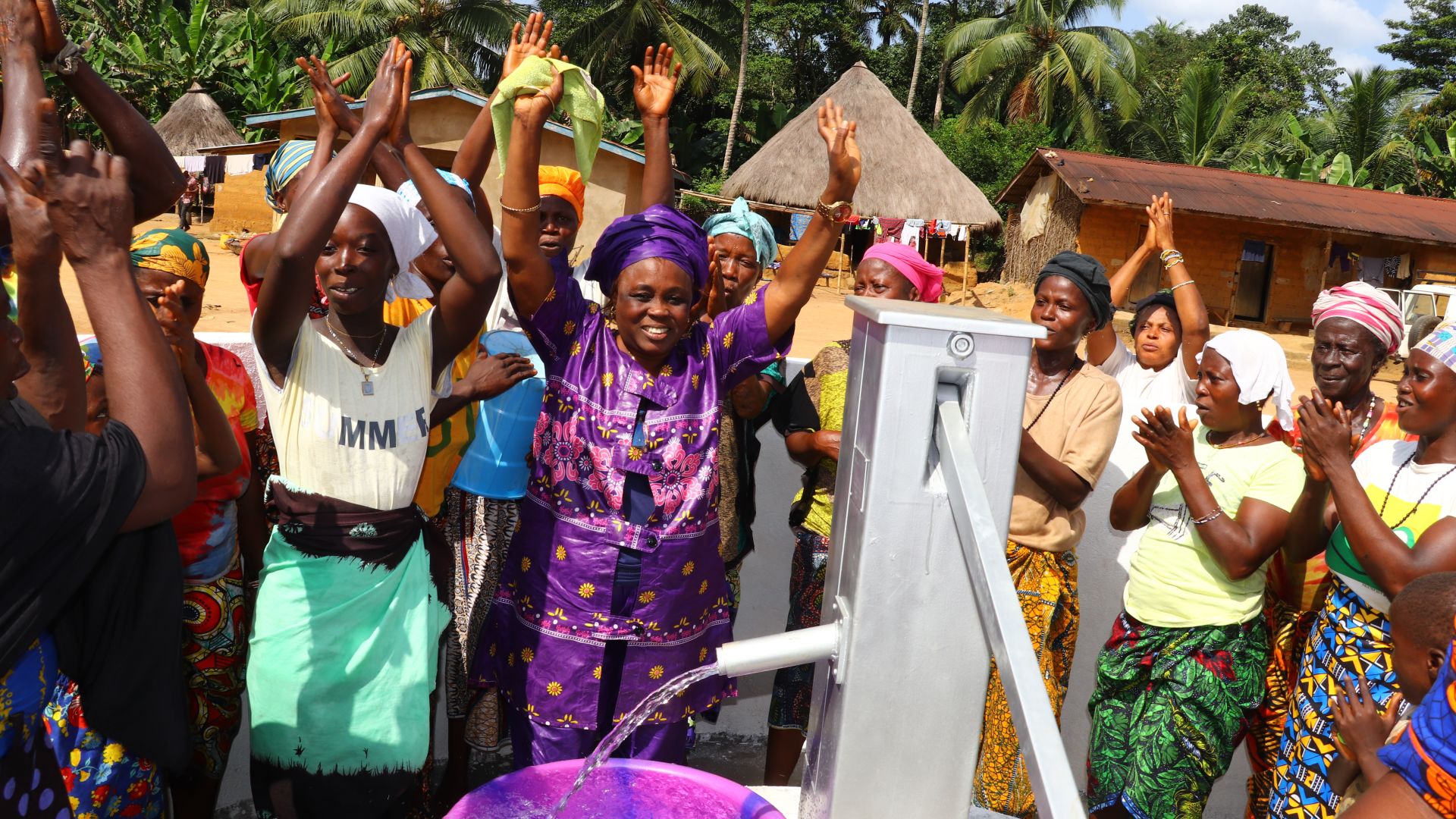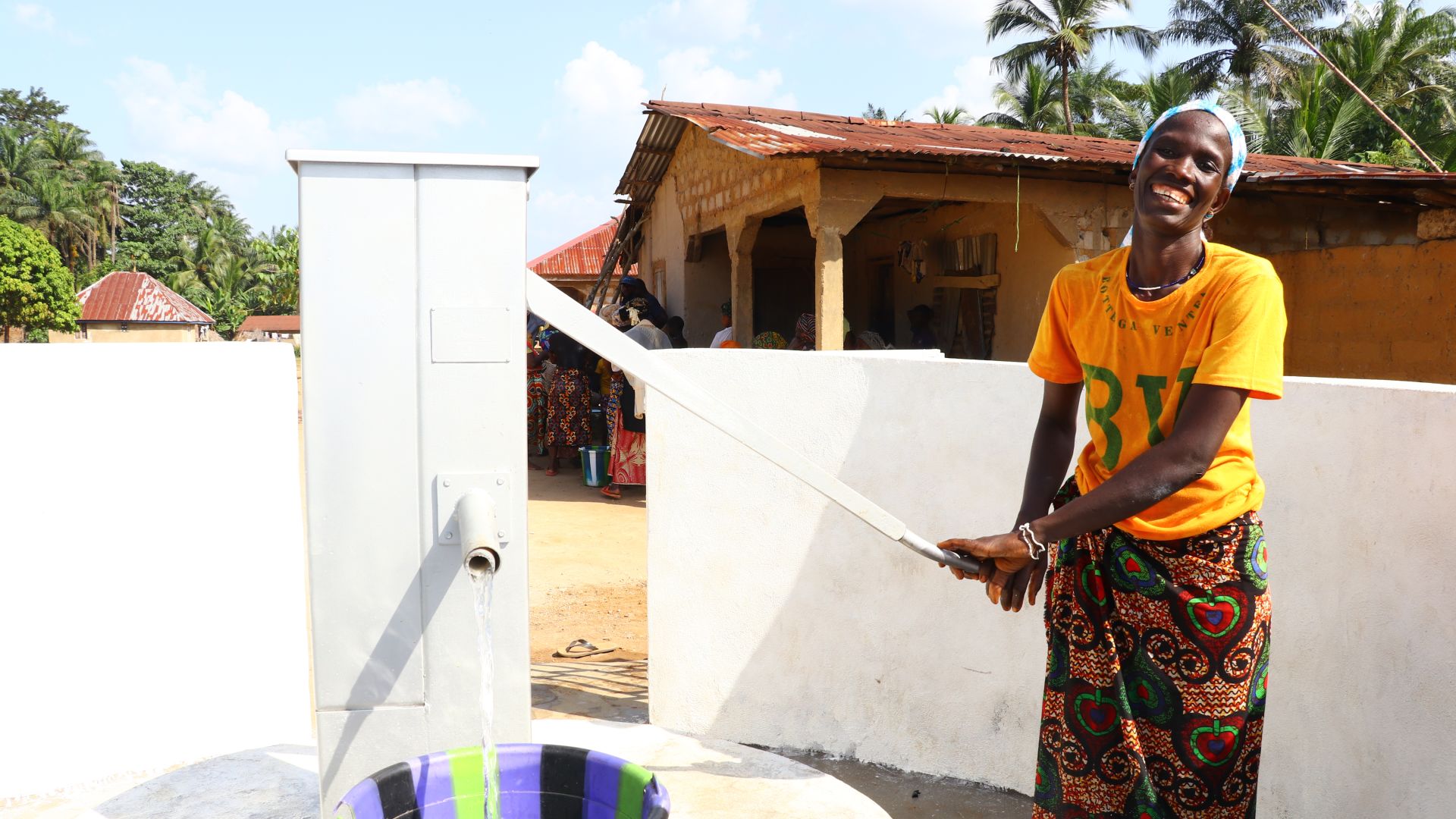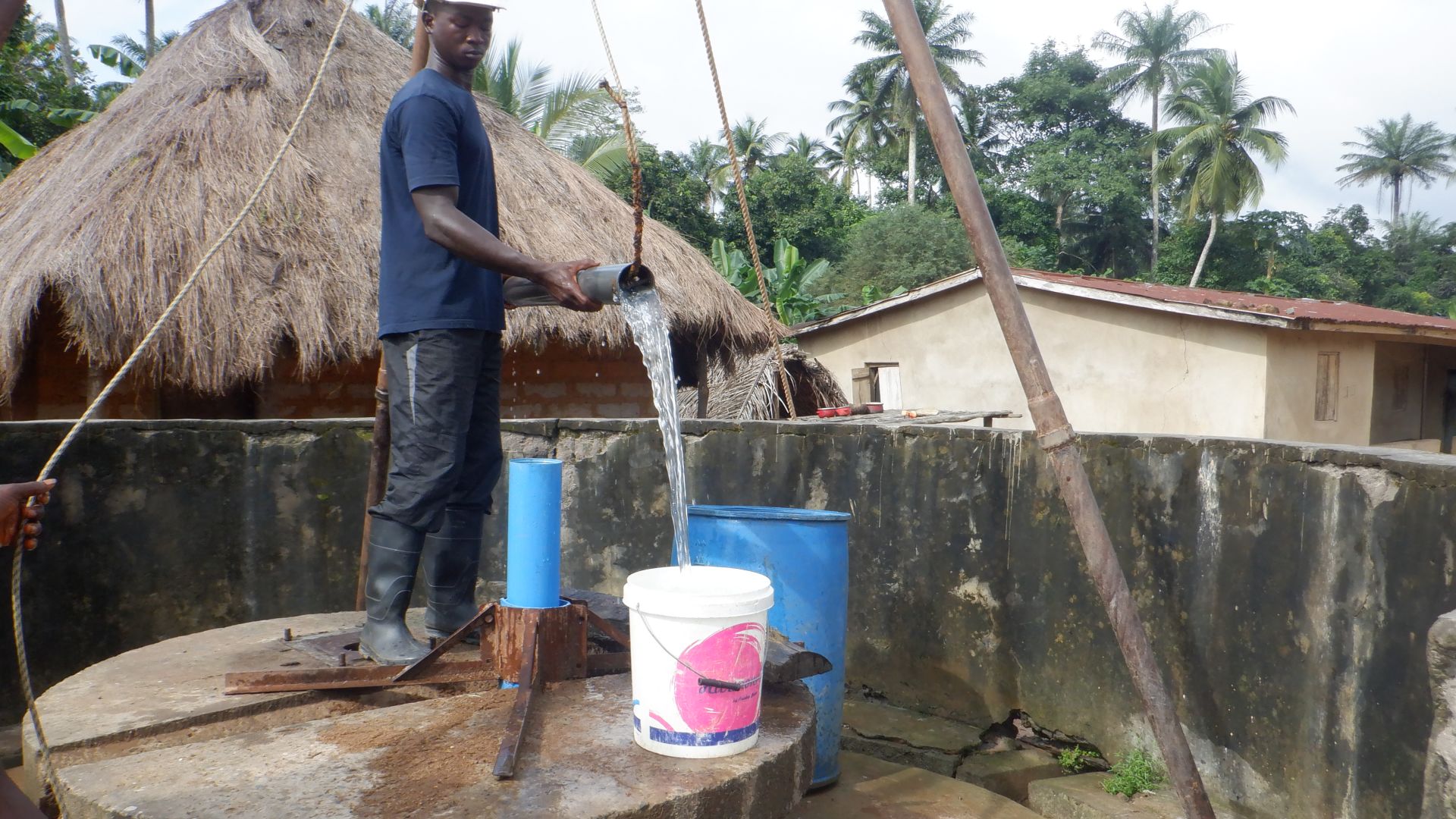The 263 people of Masanneh Community struggle to access sufficient water. Their protected dug well is overused, and their only other option is a distant stream. Both options risk their safety daily.
Field Officer Julius Sesay described the issues confronting the protected dug well. He said, "The main water source has no gate. This will allow easy access for water users and animals to enter the well. Contamination is likely to occur during such situations. The lack of chlorination of the well also creates room for transmission of water-related illnesses to be experienced by water users. They are killing themselves slowly without knowing it."

Not only is the water they collect from both sources contaminated, but the journey is just as dangerous. Snakes, scorpions, and other poisonous creatures lurk in the bush surrounding the narrow road to the stream. However, sometimes, what they truly fear are other people.

"Some women will be afraid to go alone at the water point because the place is bushy," said Julius. There have been reported cases of sexual violence when women travel to the waterpoint alone.
Health and safety, unfortunately, are not the only consequences of these water sources. The well becomes extremely overcrowded, limiting the water collected and wasting too much time waiting for a turn. In the same way, the stream can run dry, and both take several days to recharge when overused.

This is 24-year-old farmer Kadiatu Kamara's (seen below at the swamp) reality every day. She shared her frustrations with trying to collect water from the community well. "The overcrowding at the main water source is affecting me. Some of the community members will come with ten to fifteen containers. Even when I plead with them to allow me to fetch water, they will deliberately refuse. It is sad that the others will still support them, including the pump caretaker himself. That is why I spend more time waiting for my turn."

"This is very stressful, especially when I could be occupied with a lot of things to do at home. I will not be able to fetch water at the time I need it. This affects me in cooking, cleaning the house, and bathing. I will use a lot of energy to pump water. The water that eventually comes out will not even be enough to fill one jerrycan. I will go home with little or no water at all," she continued.
Children are not exempt from the daily struggle. They are also tasked with collecting water for their households, often at the expense of their education. This is especially true for girls.
Mariama K., 16, seen below, is one of many girls who experience juggling their future with their present. She shared, "One of the challenges I face is when the water at the well becomes less, even pumping water from the well becomes difficult. I will use a lot of energy and have less water. The water will not even be sufficient for me to wash the dishes. Therefore, I must leave the water point to fetch water from the stream. My parents will not even want to know the difficulties I undergo. All they want to see at home is enough water."
"I spend a long time just to do a single trip to the water point mainly because of the distance. Another thing that leads to the delay is when the water in the stream becomes dirty. People [who] launder around the stream are contributing factors to this situation. I must wait patiently for the water to regain its normal color. This waiting time affects me, especially when I want to go to school," she continued.

"By the time I come from the waterpoint, I will barely have enough time to go to school. My dad will say these words to me. 'Now that you are already late for school, please follow me to the farm.' This is really beyond my wish. Since he is my dad, I must humbly obey. This situation is even affecting my performance at school because I end up missing a lot of important lessons that I will not be able to regain," said Mariama.
As you can tell, children like Mariama long for the opportunity to go to school; they know an education is vital to improving their futures. But without safe, easily accessible water, their education can't be prioritized.
The rehabilitation of their protected dug well will significantly improve their situation. When a protected dug well is rehabilitated, we drill down much deeper so more water can be accessed and the recharge speed of the well increases.
The Masanneh Community is looking for an opportunity to improve their lives, and access to a reliable, closely located well is the first step in that process. Then, people like Kadiatu will collect water efficiently without sacrificing other essential tasks. Hopefully, children like Mariama will have the chance to get an education because her family won't be as desperate for her to spend her time collecting water.
The Proposed Solution, Determined Together...
At The Water Project, everyone has a part in conversations and solutions. We operate in transparency, believing it benefits everyone. We expect reliability from one another as well as our water solutions. Everyone involved makes this possible through hard work and dedication.
In a joint discovery process, community members determine their most advantageous water solution alongside our technical experts. Read more specifics about this solution on the What We're Building tab of this project page. Then, community members lend their support by collecting needed construction materials (sometimes for months ahead of time!), providing labor alongside our artisans, sheltering and feeding the builders, and supplying additional resources.
Water Access for Everyone
This water project is one piece in a large puzzle. In Kenya, Sierra Leone, and Uganda, we're working toward complete coverage of reliable, maintained water sources that guarantee public access now and in the future within a 30-minute round trip for each community, household, school, and health center. One day, we hope to report that this has been achieved!
Training on Health, Hygiene & More
With the community's input, we've identified topics where training will increase positive health outcomes at personal, household, and community levels. We'll coordinate with them to find the best training date. Some examples of what we train communities on are:
- Improved hygiene, health, and sanitation habits
- Safe water handling, storage & treatment
- Disease prevention and proper handwashing
- Income-generation
- Community leadership, governance, & election of a water committee
- Operation and maintenance of the water point

 Borehole Well and Hand Pump
Borehole Well and Hand Pump



























